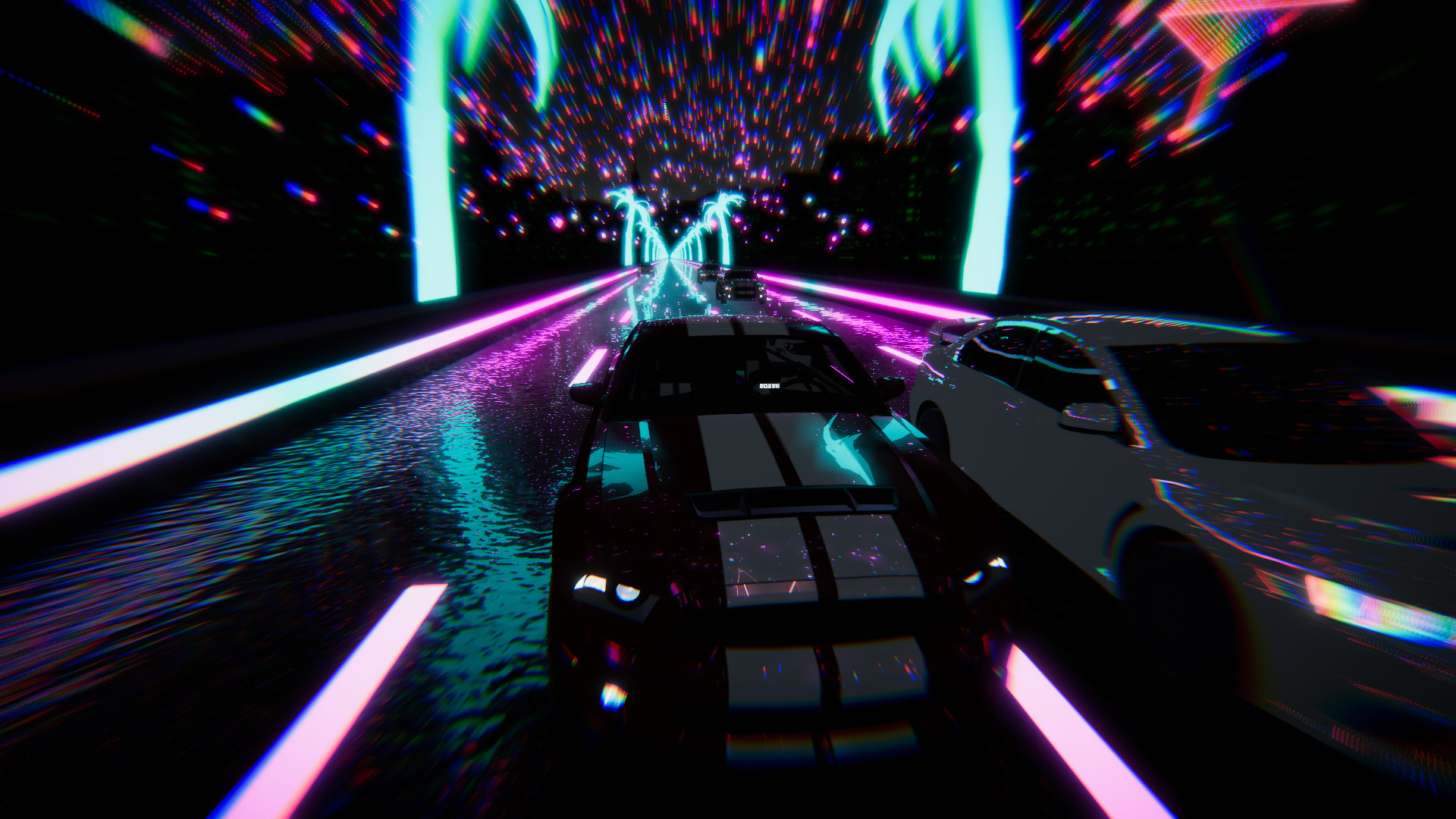
On paper it was primed to rewrite videogaming past like its synthwave-soundtracked brethren and offer the kind of heightened nostalgia hit you can’t get from genuinely old titles, never quite as stylish or ‘of their time’ as you remember.

Far Cry 3: Blood Dragon ticked all the boxes of the aesthetic: late '80s typography, that familiar colour palette, and an ironic repurposing of period elements (in this case the voice of Terminator and Aliens actor Michael Biehn).

If Hotline Miami represents the high point for synthwave-influenced games, the following year would see its low point. Its poster, with a typeface inspired by 1983's Risky Business in hot pink contrasted against its dark blues, seems to have set out an indelible vision of that aesthetic.
#Neon drive soundtrack full
With a hyper-stylized period setting, violence depicted with passivity, and a soundtrack full of Kavinsky, College, and Desire, Drive put synthwave in front of a mainstream cinema audience. Released in 2012, it found an audience who’d seen Nicolas Winding Refn’s Drive in theaters just a few months prior. And as its creators have frequently pointed out, that was always the point.ĭespite the obvious craftsmanship of both game and soundtrack, Hotline Miami was lucky to find the success that it did. In many ways Hotline Miami is a horrible place to find yourself in, one you only stay in because you’re enjoying the violence so much. Those 22 songs from the likes of Perturbator, Jasper Byrne, and Scattle have persistent beats matching your stubborn restarts while their glassy synth pads seem to implicitly reinforce the nihilism of the setting and dialogue.

Hotline Miami's soundtrack, however, seems to gel with the pace and attitude of the game perfectly.


 0 kommentar(er)
0 kommentar(er)
